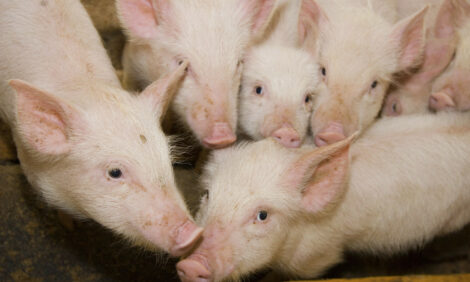



Japanese encephalitis virus in Australia
In 2022 an outbreak of Japanese encephalitis virus hit the pig producing region of AustraliaAn outbreak of clinical disease caused by Japanese encephalitis virus (JEV) was observed concurrently across several piggeries in southeastern Australia beginning in February 2022. Clinical signs varied across farms and included prolonged gestation length, mummified and stillborn piglets, congenital abnormalities, and neurological abnormalities, said Chris Richards, Apiam Animal Health, Australia.
Several veterinary groups across Australia identified these clinical signs over a 7-day period on piggeries that were located within the Murray Darling region, however in some cases those farms were geographically separated by thousands of kilometers. The Japanese encephalitis virus was considered exotic to southeastern Australia, and as a result of the pathogen being confirmed, a foreign animal disease (FAD) response was enacted, Richards explained.
Clinical signs in southeastern Australia were first observed in February 2022 and over the following four months more than 80 piggeries reported having clinical disease confirmed by laboratory testing, he said.
Some sows failed to farrow by day 117 and in some cases extended to 126 days. Sows with extended gestation periods were induced and they passed a large number of mummified and stillborn piglets. This clinical sign was observed in all parities of sows with a variation from 10% to 100% of piglets affected in each litter, Richards noted during the 2023 Leman Swine Conference.
Mummified piglets appeared bloated with ascites and there was a positive correlation between sows that tested serologically positive to JEV having entire litters of mummified piglets, he said.
Whether a sow within an affected herd showed clinical disease was dependent upon whether it had been infected with JEV through a mosquito bite, and the stage of gestation when it was infected.
Stillborn piglets presented an array of congenital abnormalities including severe arthrogryposis and brachygnathia. Some piglets with these abnormalities were also born alive.
Neurological abnormalities were a striking feature, with cerebral and cerebella aplasia, hydranencephaly and meningocele. Some piglets were also born alive exhibiting congenital tremors, he noted.
JEV background
Japanese encephalitis virus (JEV) is a flavivirus, an enveloped positive strand RNA virus endemic in eastern and southeastern Asia. Flavivirus encompasses a large group of viruses, often arthropod borne. JEV was detected in sentinel pigs and mosquitos in the northern tropical tip of mainland Australia approximately 20 years ago, however, it had never previously been identified in southeastern Australia, where most of the pig industry operates, nor in any other part of the country, Richards explained.
JEV is a zoonotic mosquito borne pathogen. Waterbirds are the disease’s reservoirs, and the virus can spill over into pigs which may act as amplification hosts. Humans and horses are considered dead-end hosts, he said.
The ability of the Australian pig industry to respond to an incursion by a foreign animal disease such as Japanese encephalitis was enhanced by the previous planning that had been undertaken by the industry for other exotic animal diseases, as well as by the strong relationship that existed between the pig producers and state government officials, Richards concluded.







